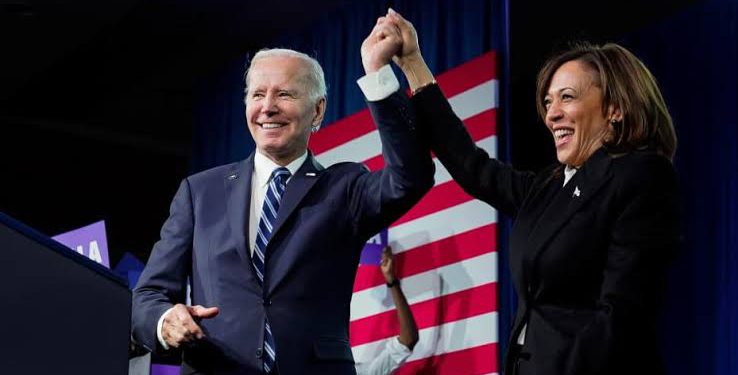In a surprising turn of events, U.S. President Joe Biden announced his decision to withdraw from the 2024 presidential race, a move that has significant implications for the Democratic Party and the upcoming election. This analysis delves into the reasons behind Biden’s decision, his endorsement of Vice President Kamala Harris, and the challenges and opportunities Harris faces as she steps into the spotlight.
Biden’s Announcement: Focusing on legacy
President Joe Biden shared his decision to withdraw from the presidential race in a heartfelt letter to the American people, emphasizing the progress made during his tenure. Highlighting achievements such as economic growth, healthcare expansion, and historic legislation, Biden expressed his gratitude to the American people for their support. He stated, “It has been the greatest honor of my life to serve as your President… I believe it is in the best interest of my party and the country for me to stand down and to focus solely on fulfilling my duties as President for the remainder of my term.”
Biden’s decision not to seek re-election underscores his commitment to completing his current term effectively, without the distractions of a campaign. His focus now shifts to ensuring that the Democratic Party remains unified and strong heading into the election, with Vice President Kamala Harris as his chosen successor.
Endorsing Kamala Harris: A Strategic Move
In a separate statement, Biden formally endorsed Kamala Harris as the Democratic nominee for the 2024 presidential election. Describing her as his best decision during his tenure, Biden urged the party to rally behind Harris to defeat former President Donald Trump. He declared, “Democrats — it’s time to come together and beat Trump. Let’s do this.”
Biden’s endorsement positions Harris as the torchbearer for the Democratic Party, highlighting her experience and capabilities. Despite facing challenges and criticisms during her vice presidency, Harris now has the opportunity to redefine her political journey and make a compelling case for her candidacy.
Kamala Harris: The Journey to the Top
Kamala Harris’s rise to the Democratic nomination marks a historic moment. As the first woman and the first Black and Asian-American to serve as vice president, Harris’s background and achievements are significant. Born to immigrant parents and raised primarily by her single mother, Harris’s diverse heritage and experiences have shaped her political career.
Harris’s journey began in the Alameda County District Attorney’s Office, progressing to become the district attorney of San Francisco, and later, California’s attorney general. Her ascent continued as she was elected as a U.S. senator in 2017. Despite a challenging presidential campaign in 2020, Biden’s selection of Harris as his running mate brought her back into the national spotlight.
Challenges and Opportunities
Harris’s candidacy comes with both challenges and opportunities. Her approval ratings have been mixed, and she has faced criticisms from both Republicans and some Democrats. However, her advocacy for reproductive rights, voting rights, and immigration reform, along with her appeal among Black voters, positions her as a strong candidate against Trump.
Harris’s ability to connect with diverse communities and her experience in tackling key issues will be crucial in her campaign. As Nadia Brown, director of Georgetown University’s Women’s and Gender Studies Program, notes, “She has been instrumental in addressing key issues such as voting rights and immigration reform… She has also been Biden’s most powerful surrogate on issues of abortion access and outreach to Black communities.”
Conclusion
President Biden’s withdrawal from the 2024 race and his endorsement of Kamala Harris represent a pivotal moment for the Democratic Party. Harris’s historic candidacy offers an opportunity for the party to unite and present a compelling vision for the future. As the election approaches, Harris’s ability to navigate the challenges ahead and leverage her unique background and experiences will be critical in determining the outcome.



























































